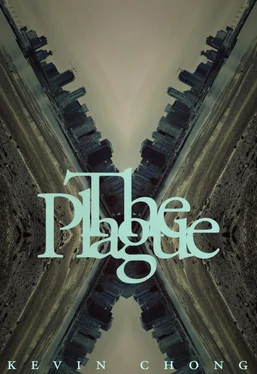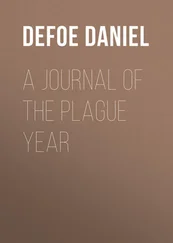He had noticed the advertisement for a Cantonese opera on a telephone pole between posters for improv comedy nights and now-cancelled concerts for touring bands. Mrs Rieux frowned when her son told her about the performance. The lines on her face deepened when she learned the price of the tickets.
On her iPad she’d been listening to Cantonese opera in her bedroom. Only a few years before, when she was still lacquering her hair in black dye, he remembered her describing the musical form as old-fashioned and boring. Rieux himself recalled his grandmother listening to cassette-tape recordings of operas. To his untrained ears, they sounded like cymbal clatter and alley-cat yowling.
His mother put on makeup and changed into the dry-cleaned slacks she had brought with her. The performance would take place at the Jewish Community Centre. They were outside the auditorium when he received his first text from Castello. She thanked him for lunch—he had paid—and confessed that she had been feeling lonely. In the volley of texts that followed, more messages than Rieux had received from her in a year, she mentioned her ongoing difficulties with Victor, the persistent grief over her son. He had no time to respond. Rieux held his phone in his hand as it continued to buzz. The veins in his neck bulged.
Outside the auditorium, a note added to the original poster indicated that the opera was being held over. The Guangzhou opera company had decided to occupy their protracted stay in Vancouver by working. But judging by the audience—only a dozen people in a theatre that seated a few hundred—their extended run exceeded public demand. The other members of the crowd were like the Rieuxs, women in their sixties accompanied by their adult children, the rest of them daughters.
They took their seats. Someone made up to look like a member of the Ming Dynasty royal court came onstage and apologized that the Chinese and English subtitles were not working for this performance of Fragrant Sacrifice. Rieux’s phone began to vibrate as a call came in. Castello, again. He thought about answering until the lights dimmed. He turned off the phone.
Two actors came onstage in heavy robes and headdresses, one playing a princess and the other a suitor who woos her with poetry. Their skin was powdered white, their eyes winged with red eyeshadow. The princess sang a capella before a recording began to lift her tune. Rieux did not understand a word. As the prince sang along, Rieux fell into a stupor—or what people might now describe as a dissociative state. His mother, however, was entranced. He watched her lips moving to the songs. He had never seen her transported. Even when she watched her TV shows, she broke off to chat with him, rewinding when necessary. Some essential tension was released from her face, and in its slackness, he saw a younger version of his mother unfastened.
Rieux caught sight of a moth. He’d been reading Virginia Woolf the previous week, and the gist of these lines rang in his mind: “It was as if someone had taken a tiny bead of pure life and decking it as lightly as possible with down and feathers, had set it dancing and zig-zagging to show us the true nature of life.” For a moment, he inhabited Woolf’s sentence. That moth was the most vital bead of life.
The first half of the opera ended. During the intermission, he listened to three separate voicemails from Castello. She was angry in her first message, weepy and apologetic in the second, and then demanded to meet him for a glass of wine in the final one. He realized then that he was normally prompt in replying. Had she demanded this promptness from him, or had he provided it in anticipation of her impatience? For some reason, Rieux felt that Castello knew he was out with his mother. She was laying claim on him.
“Are you needed?” Mrs Rieux asked. “Is it work?”
He shook his head. She seemed alarmed that they might have to leave and then relieved that they could stay.
“They’re quite good,” she said about the performers. “How did you know this was my favourite opera?”
“I just knew.” He didn’t.
They returned to their seats, and the lights dimmed once more. They’d never gone to live theatre when he was growing up. He occasionally saw a movie as part of a church group activity or on his or his sister’s birthday. As he got older and took part in after-school band practices, he missed his mother who was always busy with her babysitting and cleaning jobs. He’d come home to find dinner in the oven for him and his sister, who helped pay down the mortgage by selling jeans during the school year and dream-home raffle tickets at the Pacific National Exhibition in the summer. He would often eat alone in front of the TV. His mother insisted that he study instead of work because one day, he’d provide for the family. And yet his sister still ended up the wealthy one with a two-thousand-square-foot flat in Hong Kong Island.
“It’s almost over,” his mother whispered to him. “This is the scene where the lovers kill themselves on their wedding night. Watch now. It is very sad.” Rieux looked up from his lap. There was a squadron of performers onstage surrounding what seemed to be a wedding banquet table, then just the two lead performers. Rieux began to pay attention again, but then the moth returned. He’d forgotten to turn off his phone, and it started to vibrate once more. By the time he shut down the phone, the moth was gone. The lovers onstage drank from poisoned goblets after the last cymbal gong, then lowered themselves to the floor.
He turned to see his mother in tears as the lights dimmed and the audience began to clap. Then the stage lights came back on. The audience waited for the couple to rise. Some applauded impatiently as they adjusted the collars of their rain-resistant parkas. Rieux could see the male actor speak to his leading lady. Their makeup was so heavy, he could not tell at first that the actor was breaking character, nor could Rieux see the urgency underlying the woman’s painted face.
The audience was too polite not to leave before the performers could be acknowledged. A stagehand was waved onto the set, at which point Rieux knew. He asked his mother to wait for him before he climbed onto the stage. He told the sick performer that he was a doctor and she nodded. Her chest felt warm when he loosened her gown to let her breathe. He asked the other performers to back off in English, and when they didn’t he waved at them and told them to step away in his baby Cantonese. The audience figured it out before the cast did. He could see them moving from the stage, up the aisle, faces in their cotton masks. They fled—to exit but also to undo.
For days after meeting her, Megan Tso was preoccupied by Yuko. She emptied the woman’s bag to try to find contact information for her, since she’d taken her phone with her into the emergency room. Along with her passport, Tso found a guidebook, a wallet-sized photo of her boyfriend (or fiancé—Yuko had been wearing an engagement ring), a wallet, and a day planner. Most of her writing was in Japanese except for one entry later that week: there was a first name, a time, and a location.
When she returned to the hospital with the bag, she was told that Yuko had died. A woman behind the desk offered to take Yuko’s bag, but suggested that it could be returned to her family sooner if Tso dropped it off herself at the Japanese Consulate.
It was only a fifteen-minute walk, so Tso agreed. Outside, she noticed more people walking. At first, she had concluded that Vancouverites were pressing on defiantly against the infection. When a half-empty city bus passed her by, she realized people didn’t want to get close to each other in a confined space.
Tso made, then retracted, a number of generalizations about the disease-stricken city. Her first great love had been a communications post-grad who had once, with a dramatic flourish of his father’s credit card, taken her to a conference in Dubai. In the cab ride from the airport, staring at a newly constructed office tower backlit in magenta, he sniffed and said, “This is a city in vertical decline.” He needed to be coaxed out of their taxi. Although by now she knew better, she was still drawn to “pronouncers,” even while she smirked at their over-simplifications and dismissals.
Читать дальше












